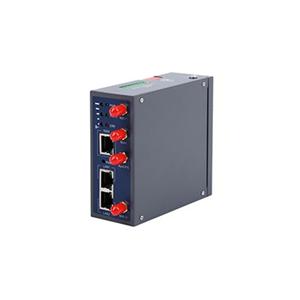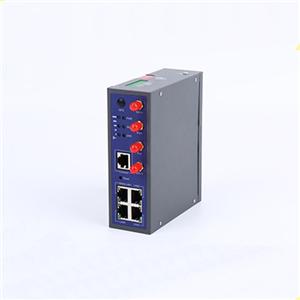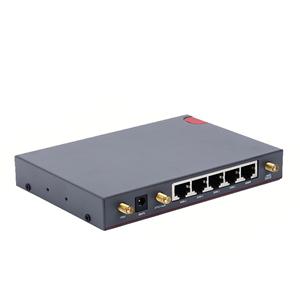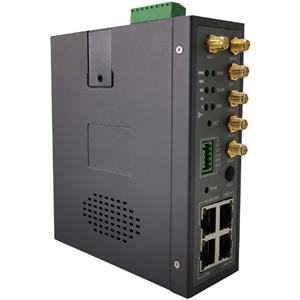The Future of Industrial Networking: Beyond 4G Modem Routers
The Future of Industrial Networking: Beyond 4G Modem Routers
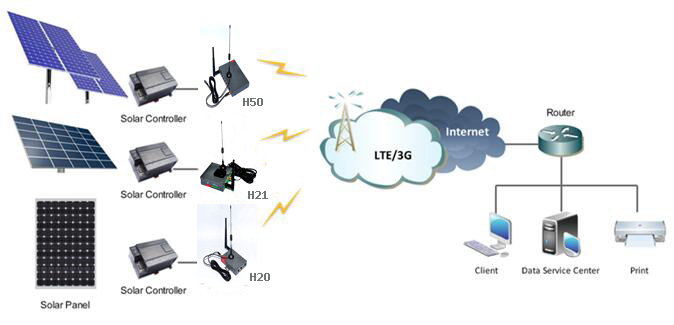
In today’s fast-paced digital world, staying ahead of the curve necessitates that companies have access to cutting edge technologies. Industrial networks are no different – to remain competitive and maintain efficient operations, they must modernize their network infrastructure and strategies. 4G modem routers represent a significant advance for industrial connectivity, but what happens when these stop being up-to-date with what's been developed? How do businesses future proof their communications networks? In this blog post we discuss the present and future outlook of industrial networking - beyond 4G modem routers. We look at some of the emerging trends in wireless technology that will enable more reliable, secure communication links while also delivering improved performance speeds. We examine how businesses can make sure they're never left behind by leveraging smart products and dynamic services designed specifically for highly demanding applications like IIoT or autonomous vehicles. Finally, we go into an exploration of how 5G capabilities could transform industrialized sectors even further than expected.
The Transition from 4G to 5G in Industrial Networking
As we continue to move towards an even more connected world, there's no doubt that 5G technology will play an integral role in shaping the future of industrial networking. The transition from 4G to 5G is already underway, with early adopters in various industries already experiencing the faster speeds, increased reliability, and lower latency that 5G has to offer. With the ability to handle more devices, real-time data, and automation at scale, 5G is set to revolutionize industrial networking by enabling new levels of productivity and efficiency. As we look forward to the full rollout of 5G and the opportunities it brings, it's clear that this new technology will continue to drive innovation and improve the way we live and work.
Emerging Technologies in Wireless Industrial Communication
Wireless industrial communication is a rapidly growing field, and the emergence of new technologies is making it easier and more efficient to communicate in environments that were previously impossible to connect. One such technology is the 4G modem router, which has become a valuable tool in the industrial sector. With the ability to connect several devices simultaneously, these routers are transforming the way that businesses communicate within their organizations and with customers. As the world becomes increasingly interconnected, it is clear that 4G modem routers will continue to play a pivotal role in shaping the future of wireless industrial communication.
The importance of next-generation 5G technology for industrial networking
Modern industries rely heavily on networking technologies for their daily operations. With the increasing demand for fast and reliable data transfer, the next-generation 5G technology has the potential to revolutionize the industrial networking landscape. 5G promises lightning-fast data transfer rates, reduced latency, and improved network reliability. This means that industries can operate more efficiently, with faster response times and greater productivity. With 5G, industrial networking can unlock a whole new level of automation, enabling machines to communicate seamlessly with each other. In a world where businesses are constantly seeking to improve their operations, the importance of 5G for industrial networking cannot be overstated.
The transition from 4G to 5G industrial networking technology is an opportunity for industries to optimize their operations. Emerging wireless technologies such as W-Fi and 5G will provide more opportunities for industries to benefit from sophisticated communication solutions across large geographical areas. Furthermore, 5G networks enable faster data analysis, which improves decision-making and helps remote workers stay connected with real-time updates. These advantages avoid costly delays and production bottlenecks due to outdated information or communication shortcomings. By considering the benefits of 5G technology, companies can make educated decisions that promote economic growth and long term success. To sum up, next-generation 5G technology provides businesses with the tools they need to become agile in response to changing market conditions. Investing in this latest technology and staying abreast of advancements in industrial networking will ensure seamless operations while preparing businesses for further digital transformation down the line.
Product recommendation:
https://www.homtecsm2m.com/product/h50-5-ports-industrial-wireless-4g-modem-router
https://www.homtecsm2m.com/product-list/industrial-router

